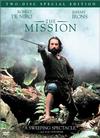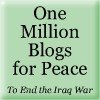Release, Part 2

(From my last post: Rodrigo Mendoza is played by Robert DeNiro in the 1986 movie The Mission.)
Mendoza: “For me there is no redemption, no penance great enough.”
Father Gabriel: “There is. But do you dare to try it?”
Mendoza: “Do you dare to see it fail?”
Mendoza believes he is so far from God and his guilt is so terrible that he doesn’t deserve to be forgiven. The Jesuits try to explain to him that God’s forgiveness is free, a gift of grace. But Mendoza can’t see it; he won’t let anyone cut loose the symbolic bag of heavy armor he drags around, even though it causes him great hardship, even endangers his life.
We are like that. We feel so unworthy that we drag around for years our chains of regret, grief, hurt, anger, and guilt, maybe a lifetime. They weigh us down and cause us unspeakable pain. We may even become so used to them that we’d feel strange without them. They are part of us. And we may not even be able to speak of them, even though they loom huge with us. We say we are not worthy of God’s forgiveness. We live pitiful half-lives.
A friend once told me, “I’ve been too bad in my life. God doesn’t want to hear from me.”
Well, it is true that we are not worthy or deserving of anything. But it is not true that God’s back is turned to us because of it. God is not a human being. He does not play games with people or manipulate us with accusing voice. He longs for us to bring that heavy bag of junk to him so that he can make it instantly disappear. Being worthy has nothing to do with it. He is all love and light. It’s all about him—not us. He loves unconditionally, no strings attached. We don’t have to deserve anything.
Once we give up that huge baggage, life becomes different. Maybe you just discovered that on, say, the Walk to Emmaus. Maybe as a result, you have a new spring in your step, a twinkle in your eye, a smile on your face.
You have tapped into the awesome, breathtaking power of the Holy Spirit. Because of him, you can rid yourself of that nasty voice that might be saying to you now, “Who do you think you are? You think God has really forgiven you and given you your life back?” Satan is the source of that voice. Many people today don’t believe in him, but he’s real; we know for certain because we can hear his voice whispering those things in our ear. Through the Holy Spirit, we can defeat his influence.
You have the power to banish Satan; just say, “Get out of here and leave me alone, in the name of Jesus!” Just put on the whole armor of God, and you’ll be protected. The Bible says, in Ephesians 6, that we must “be strong with the Lord’s mighty power” and “stand firm against all strategies and tricks of the Devil.”
We can be sure that this battle is “against the evil rulers and authorities of the unseen world,” the “mighty powers of darkness who rule this world.” Here’s what Paul says, in the New Living Translation:
Use every piece of God's armor to resist the enemy in the time of evil, so that after the battle you will still be standing firm. Stand your ground, putting on the sturdy belt of truth and the body armor of God's righteousness. For shoes, put on the peace that comes from the Good News, so that you will be fully prepared. In every battle you will need faith as your shield to stop the fiery arrows aimed at you by Satan. Put on salvation as your helmet, and take the sword of the Spirit, which is the word of God. Pray at all times and on every occasion in the power of the Holy Spirit. Stay alert and be persistent in your prayers for all Christians everywhere.
Wield the sword of the Spirit and don’t let him rob you of your joy!
“Sword of Solomon II-s.” Real Armor of God. 28 Apr. 2006 http://www.realarmorofgod.com/shop/product_info.php/






